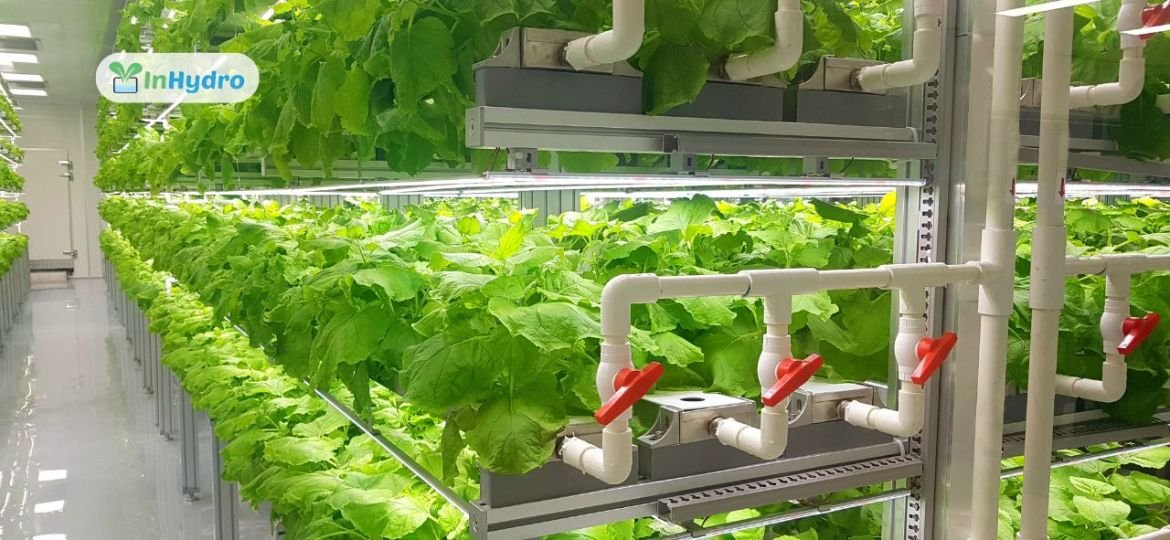
Best Hydroponic System Types for Growing Healthy Crops
Hydroponics has transformed agriculture by enabling efficient, sustainable, and high-yield farming without soil. The concept of soil-free cultivation not only conserves water and space but also allows for year-round crop production in controlled environments. With various options available, choosing the best hydroponic system depends on your goals, crop types, and available resources.
This guide explores the top hydroponic farming systems, their benefits, and how they can help you grow healthy, nutritious crops.
What is a Hydroponic System?
A hydroponic system is a method of cultivating plants in a nutrient-rich water solution without using soil. Instead, alternative growing mediums like coco coir, perlite, or clay pellets support the plants while delivering oxygen and nutrients directly to the roots. This soil-free method boosts efficiency, accelerates growth, and reduces resource usage compared to traditional farming.
Types of Hydroponic Systems
Here are the most popular hydroponic system types to consider:
1. Deep Water Culture (DWC)
Deep Water Culture is one of the simplest and most effective systems for growing crops. In this method, plant roots are suspended in oxygenated, nutrient-rich water.
Key Benefits:
- Low cost and easy setup.
- Ideal for leafy greens like lettuce and spinach.
- Accelerated growth due to constant nutrient availability.
2. Nutrient Film Technique (NFT)
The Nutrient Film Technique involves a thin stream of nutrient-rich water flowing over the plant roots in a slight incline, ensuring consistent nutrient delivery.
Key Benefits:
- Minimal water wastage due to recirculation.
- Best suited for small, lightweight crops like herbs and greens.
- Compact design ideal for urban farming setups.
3. Drip Irrigation System
In a drip hydroponic system, nutrient solution is delivered directly to the base of each plant through a drip emitter. This setup is versatile and suitable for large-scale operations.
Key Benefits:
- Highly customizable for different crops.
- Works well for larger plants like tomatoes and peppers.
- Reduces water and nutrient loss.
4. Aeroponics
Aeroponics is an advanced system where plant roots are suspended in the air and misted with a nutrient solution.
Key Benefits:
- Maximized oxygen exposure for faster growth.
- Ideal for high-value crops like herbs and strawberries.
- Space-efficient and perfect for urban environments.
5. Dutch Bucket System
The Dutch bucket system is designed for growing large, fruiting plants. Each plant is housed in its own bucket filled with a growing medium, connected to a recirculating nutrient solution.
Key Benefits:
- Excellent for crops like tomatoes and cucumbers.
- Individual buckets prevent root entanglement.
- Scalable for both small and large operations.
6. Vertical Hydroponic System
The vertical hydroponic system is a space-saving solution where crops are grown in stacked layers, making it ideal for urban agriculture.
Key Benefits:
- Maximizes production in limited spaces.
- Best suited for leafy greens, herbs, and strawberries.
- Eco-friendly with low water and nutrient usage.
Choosing the Best Hydroponic System
Selecting the best hydroponic system depends on various factors:
Factor | Recommended System |
Crop Type | NFT for greens, Dutch bucket for tomatoes |
Space Availability | Vertical hydroponic systems for small spaces |
Budget | DWC for affordability, Aeroponics for premium setups |
Scale | Drip systems for large-scale farming |
Benefits of Hydroponic Farming
Hydroponic farming offers a range of advantages that make it a preferred choice for modern agriculture:
- Faster Growth
Hydroponics delivers nutrients directly to plant roots, enabling faster growth compared to traditional soil farming. - Water Efficiency
Most hydroponic systems use up to 90% less water than soil-based methods, making them eco-friendly and sustainable. - Pest and Disease Control
The absence of soil eliminates many pests and diseases, reducing the need for harmful pesticides. - Year-Round Production
Controlled environments allow crops to grow regardless of the season, ensuring consistent supply. - Higher Yields
Optimized nutrient delivery and growth conditions lead to greater productivity.
Why Choose InHydro for Your Hydroponic Systems?
At InHydro, we provide premium solutions for hydroponic farming, tailored to meet the needs of hobbyists and commercial growers alike. Whether you’re looking to start with a Deep Water Culture system or scale up with a vertical hydroponic setup, InHydro has you covered.
Our team offers expert guidance, high-quality equipment, and ongoing support to ensure your hydroponic journey is a success. With InHydro, you can embrace the future of soil-free cultivation with confidence.
FAQs
The Deep Water Culture (DWC) system is simple to set up and maintain, making it ideal for beginners.
A vertical hydroponic system is perfect for small spaces, as it maximizes production in a compact footprint.
Yes, systems like Aeroponics and Dutch Bucket setups are suitable for certain root vegetables like carrots and radishes.
Hydroponics uses up to 90% less water than traditional soil farming, thanks to efficient recirculation.
Conclusion
Hydroponic farming is paving the way for a sustainable, efficient, and high-yield agricultural future. By choosing the best hydroponic system for your needs, you can grow healthy crops with minimal resources and effort.
Whether you’re starting small or scaling up to commercial production, InHydro offers cutting-edge solutions and expert support for all your soil-free cultivation needs. Start your hydroponic journey with InHydro and experience the future of farming today!

